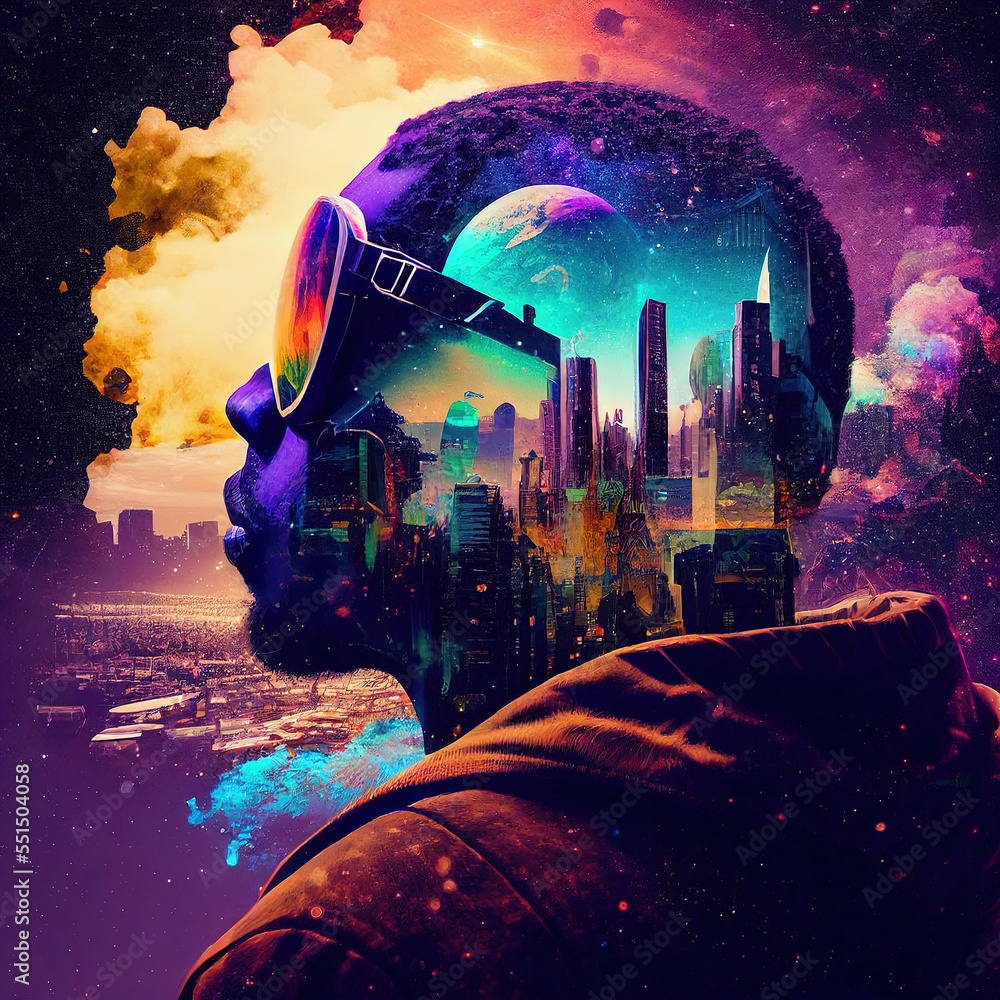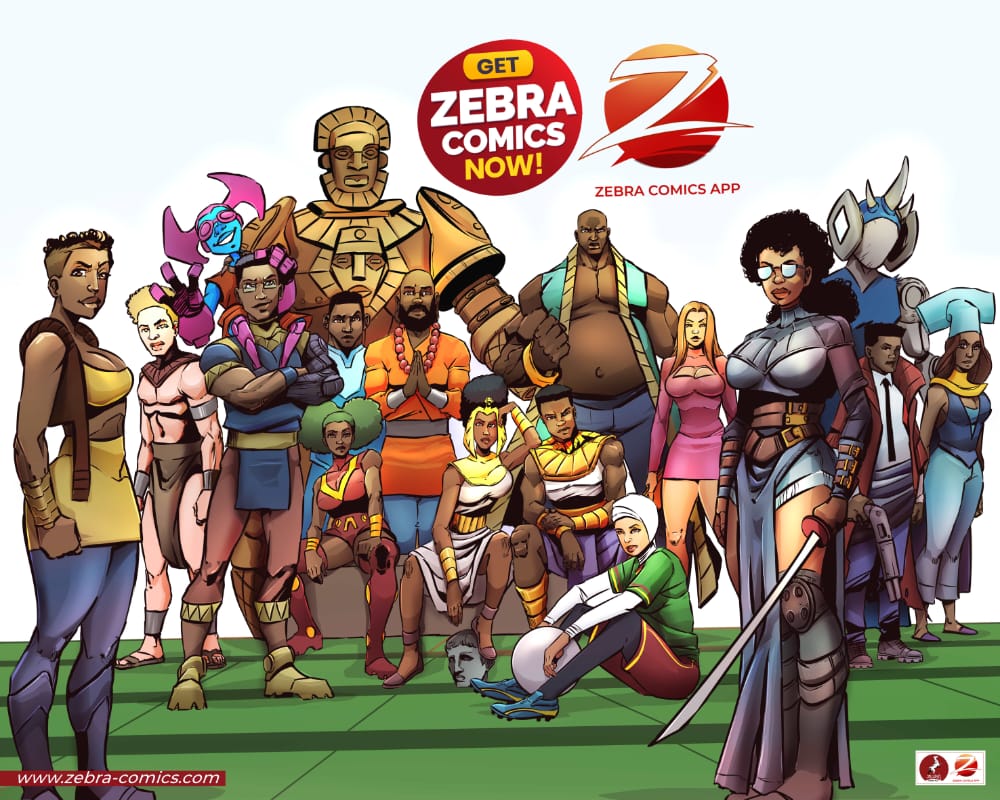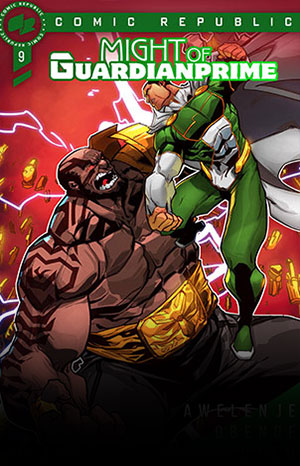Let’s state this from the start: the future of African comics is brighter than it has ever been imagined to be. From its humble beginnings to present day, African comics has seen growth that has been slow but steady. Actually, this slow rise in interest and consumption of African comics began to fade away when the internet showed up. With many more people owning digital devices like smartphones, PCs and tablets, and the deep penetration of the internet on the African continent, African comics have seen better days, reaching audiences which were impossible to reach before.
Now, all of the above sounds nice and cosy, but the state where African comics finds itself is not all roses and perfumes. To get into perspective, African comics still sit at the bottom of the podium when compared to comics from North America, Europe and Asia. Sales numbers are still considerably lower, production quality is not yet at its best, production quantities are still small and distribution is still a headache. Yes, it is true that African comics have come a long way and are doing better than ever, however, there are still a lot of things to be done to ensure that African comics reach their full potential and bring to the continent what it should normally bring.
So, yes, African comics can do much better than it is doing now. Even though African comics publishers are getting publishing deals with larger corporations and adaptation deals with media houses, African comics can do much more. There is much more terrain to cover and with the opportunities that are now available to African comics, the future cannot be anything else but bright.
So, what will the African comics market look like in the future? Here are some predictions for you.
1. Creation of new ‘African’ Art Styles

As you may already know, there are three art styles which have dominated the world of comics; American realism, Franco-Belgian style and Japanese Manga style. Yeah, we know there are a myriad of variations and art styles out there. However, these comic book art styles are developments from any of the aforementioned styles. This is the same story for Africans, mostly. Generally, Japanese manga has been a huge influence on comic book art in Africa. At the same time, though, we see a lot of influence from American and Franco-Belgian comics. In anglophone Africa, Japanese manga and American comics are highly appreciated. Franco-Belgian art styles add to the above in Francophone Africa. These influences are so strong that many artists find themselves virtually drawing characters that look like Japanese. This has been an issue for some time and it could be seen as one of the main reasons why African comics do gain the same attention and success as their western and eastern counterparts. Much of what is created to look like Japanese Manga usually drowns in the ocean of top Japanese creations, giving these comics little chance of emergence because they are not unique and authentic. The great thing at this point is that African creatives are learning and for some time, they have been working hard on bringing innovation and authenticity to their works. The future of African comics should therefore see the emergence of new ‘African’ art styles which will render African comics even more unique and authentic, and therefore attract many more consumers from across Africa and the world.
2. Increase in the number of comic book publishers from Africa

One of the biggest problems plaguing the comic book industry in Africa is publishing. There is a lot of talent on the content, however, most of that talent dies out due to the shortage or inadequacy of publishing houses. In some cases, creators cannot find the right publishing house on the continent to publish their works and get them to creators. The situation gets worse when we look at the real publishing capacities of these publishing houses. Many of them cannot ensure quality printing, others cannot print large quantities to meet large market demands and, above all, all of them usually do not have access to well-developed distribution networks that will help disseminate these books. Thank God, the internet is here. The future of comic book publishing will see the emergence of new publishers who will enable many more African comics to reach large audiences. This will also be the case for traditional publishers who will continue popping up to contribute their own quota to this anticipated growth of the African comics market.
3. Rise in the number of Comic book creators and creations
Log in to Facebook, Instagram or Pinterest, search for African comics, and you will discover a ton of African comic book creators out there. Today, the number of comics creators from Africa is growing. Interest in the artform is rising and many more Africans are getting interested. The problem, however, is that these creators do not end up publishing their creations for a wider audience to consume. It is true that some of them make use of social media to publish their comics, but except they have thousands of people following them on these platforms (which many don’t), their works will never reach larger audiences. As stated above, in the future, we will witness a growth in the number of comic book publishers from Africa. This will happen both in traditional publishing and in digital publishing. This increase in the number of publishers will provide more avenues for African creators to publish their work and encourage many others to create African comics.
4. Creation of more stories based on African history, culture and traditions.

Comics have usually been about superheroes, fantasy worlds, romance and contemporary life. This has influenced African comics creation so deeply that many African creators find it difficult to create anything new, even when there is a lot around them which can serve as inspiration. This is not to say that there is a problem with doing superhero, science fiction or fantasy comics. The issue here is that comics are a veritable platform for promoting cultures and ways of life, but many African creators do not take that opportunity to promote their own cultures. In the end, we witness so much creative potential being buried in reproducing what comic book enthusiasts have already seen over and over again. However, side by side with this trend, there is a rising consciousness of the need to tell original, authentic and undiluted African stories through different mediums, including comics. It is thanks to this consciousness that comic book companies like YouNeek Studios, Kugali Media and Comic Republic have been able to get the attention of mega production companies and sign important deals with them. This consciousness will only continue to grow and the future will see African creators making more use of African history, culture and traditions to create comics that sell Africa to the world in interesting ways.
5. Making a living through comics creation and publishing
The interest in comics will continue to grow, the need to tell authentic African stories will grow even more and this will culminate in African creators and publishers making more money from their respective activities. Today, there are a myriad of ways to monetize comics and so, much more money will be made. From subscriptions (both physical and digital), to digital coins, to monetizing with ads to adaptation deals, African comics will see brighter days in the future, and enable creators and publishers to make a decent living from their work.
6. More Adaptation Deals.

Adaptation into other entertainment formats is a big deal in the comic book industry. Adaptations into animation, video games, movies and merchandise always bring more consumers, exposure and revenue to comics. In the future, African comics will see more of this because many more comics from the continent will provide very interesting stories, characters and worlds that are excellent for adaptation into the aforementioned formats. This is already happening today with comic book companies like Comic Republic, Kugali Media and YouNeek Studios, and the trend will only continue to grow.
It is true that African comics are not yet witnessing the kind of growth that comics from the United States, France, Belgium and Japan are witnessing. However, African comics are gaining more and more attention and market share as days go by. Yes, shortcomings still exist that make things difficult for African comics to emerge properly. This has made it difficult for creators to create great comics and publishers to generate the kinds of revenue they should normally be generating. Nevertheless, with growing consciousness in the need to create content based on all that is Africa, the availability of new ways to distribute and monetize, and interest from production partners from across the world, the future of African comics looks brighter than it was ever imagined to be.




